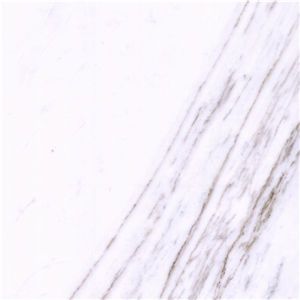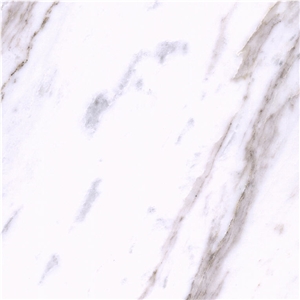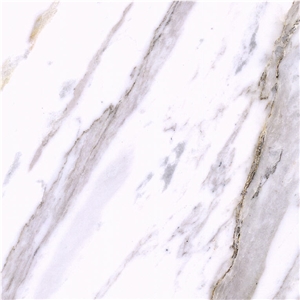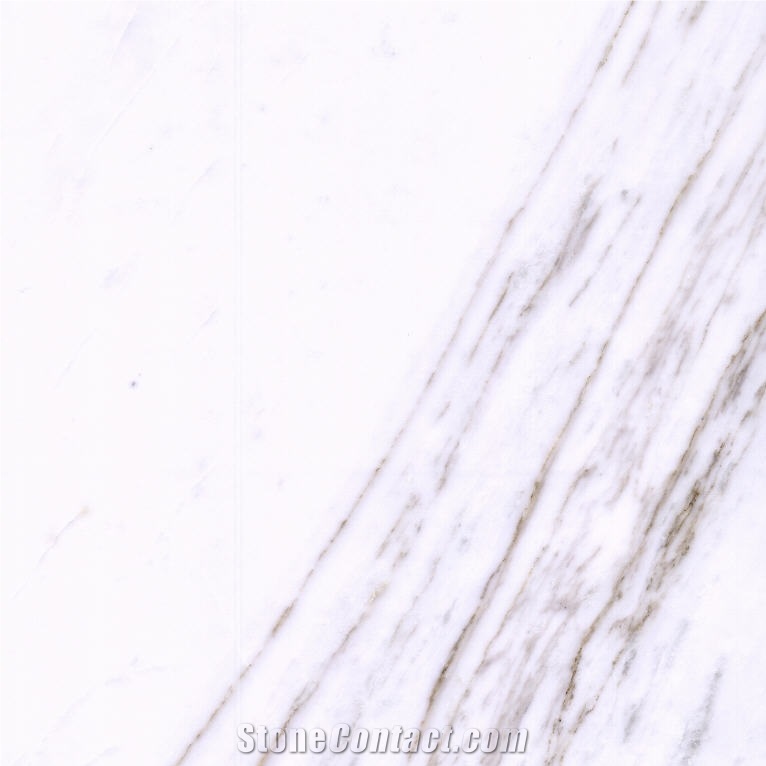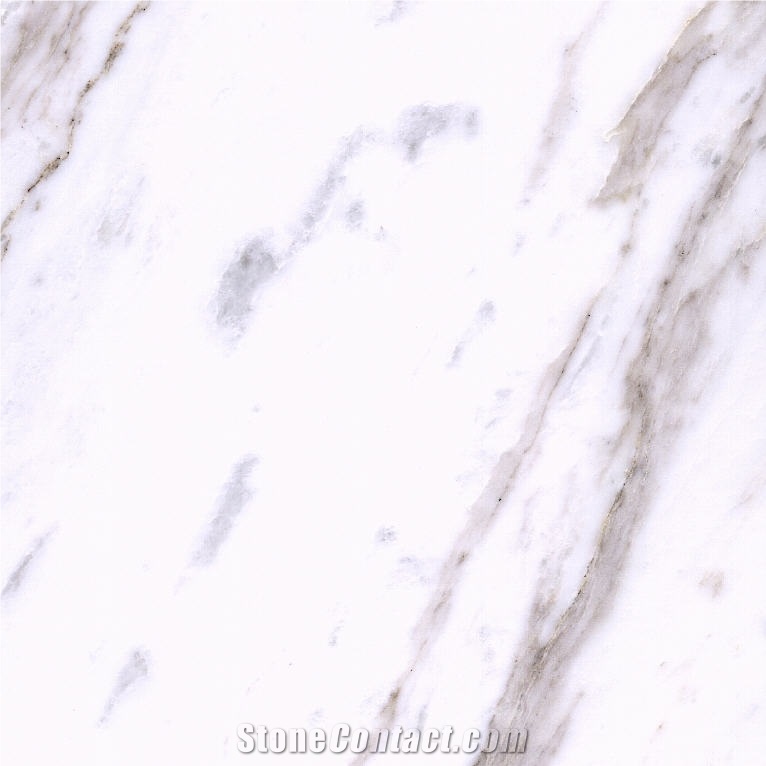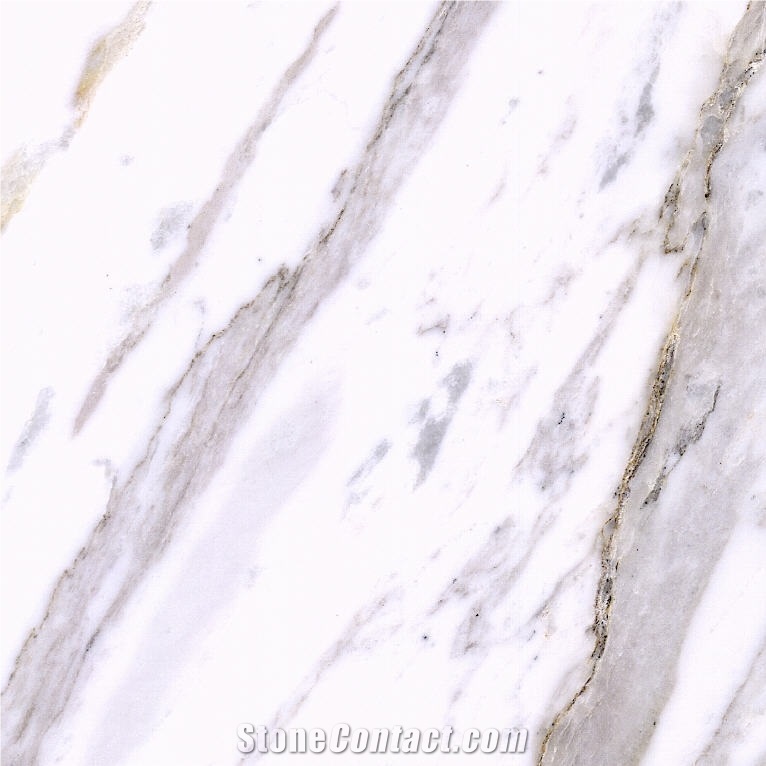Volakas Diagonal Marble
 Greece
(Volakas, Drama,northern Greece)
Greece
(Volakas, Drama,northern Greece)
Volakas Diagonal Marble is a dolomitic marble quarried in northern Greece near the town of Volakas. It has a white background and diagonal vein structure ranging from light to thick and vein colors of grey, purple, pink or even brown. This stone is especially good for Building stone, sinks, monuments, pool coping, sills, ornamental stone, interior, exterior, wall, floor , paving and other design projects. It also called Volakas Marble . Volakas Diagonal Marble can be processed into Polished, Sawn Cut, Sanded, Rockfaced, Sandblasted, Tumbled and so on.

Can you put hot pans on Volakas Diagonal Marble?

What are the disadvantages of Volakas Diagonal Marble?

Is Greece's Volakas Diagonal Marble an expensive stone?

Is it advisable to use Volakas Diagonal Marble for the kitchen countertop?

What is the chemical composition of Volakas Diagonal Marble?

What is the physical properties of Volakas Diagonal Marble?

Can Greece's Volakas Diagonal Marble be used exterior applications in very sunny climates?

Can Greece's Volakas Diagonal Marble be used in wall coverings?

What grade is Greece's Volakas Diagonal Marble?

Are there color variations of Greece's Volakas Diagonal Marble?

Can Greece's Volakas Diagonal Marble be used in a office?

What is the average water absorption of Greece's Volakas Diagonal Marble?

How thick is Greece's Volakas Diagonal Marble slabs?

How do you prevent water stains on Volakas Diagonal Marble?

What is the coefficient of friction of Chiseled Greece's Volakas Diagonal Marble tiles?
-

-

 China
China
 8YRDiamond members are premium members on platform, providing members with comprehensive approach to promoting their products, increasing products exposure and investment return to maximize.
8YRDiamond members are premium members on platform, providing members with comprehensive approach to promoting their products, increasing products exposure and investment return to maximize.
 Verified Supplier is for prove company authenticity,including business license,trade license and effective office space,to enhance buyers' trust to suppliers and their products, reducing communication costs.
Verified Supplier is for prove company authenticity,including business license,trade license and effective office space,to enhance buyers' trust to suppliers and their products, reducing communication costs.
Contact Supplier
-

-

-

Xiamen Yinxiang Artificial Marble Co., Ltd.
 China
China
 5YRDiamond members are premium members on platform, providing members with comprehensive approach to promoting their products, increasing products exposure and investment return to maximize.
5YRDiamond members are premium members on platform, providing members with comprehensive approach to promoting their products, increasing products exposure and investment return to maximize.
 Verified Supplier is for prove company authenticity,including business license,trade license and effective office space,to enhance buyers' trust to suppliers and their products, reducing communication costs.
Verified Supplier is for prove company authenticity,including business license,trade license and effective office space,to enhance buyers' trust to suppliers and their products, reducing communication costs.
Contact Supplier
-

 China
China
 8YRDiamond members are premium members on platform, providing members with comprehensive approach to promoting their products, increasing products exposure and investment return to maximize.
8YRDiamond members are premium members on platform, providing members with comprehensive approach to promoting their products, increasing products exposure and investment return to maximize.
 Verified Supplier is for prove company authenticity,including business license,trade license and effective office space,to enhance buyers' trust to suppliers and their products, reducing communication costs.
Verified Supplier is for prove company authenticity,including business license,trade license and effective office space,to enhance buyers' trust to suppliers and their products, reducing communication costs.
Contact Supplier
-

Fujian Province Ruifengyuan Industrial Co., Ltd.
 China
China
 Verified Supplier is for prove company authenticity,including business license,trade license and effective office space,to enhance buyers' trust to suppliers and their products, reducing communication costs.
Verified Supplier is for prove company authenticity,including business license,trade license and effective office space,to enhance buyers' trust to suppliers and their products, reducing communication costs.
Contact Supplier
-

Fujian Province Ruifengyuan Industrial Co., Ltd.
 China
China
 Verified Supplier is for prove company authenticity,including business license,trade license and effective office space,to enhance buyers' trust to suppliers and their products, reducing communication costs.
Verified Supplier is for prove company authenticity,including business license,trade license and effective office space,to enhance buyers' trust to suppliers and their products, reducing communication costs.
Contact Supplier
-

 China
China
 12YRDiamond members are premium members on platform, providing members with comprehensive approach to promoting their products, increasing products exposure and investment return to maximize.
12YRDiamond members are premium members on platform, providing members with comprehensive approach to promoting their products, increasing products exposure and investment return to maximize.
 Verified Supplier is for prove company authenticity,including business license,trade license and effective office space,to enhance buyers' trust to suppliers and their products, reducing communication costs.
Verified Supplier is for prove company authenticity,including business license,trade license and effective office space,to enhance buyers' trust to suppliers and their products, reducing communication costs.
Contact Supplier
-

The request includes: 1. surface finished, size 2. quantity required






